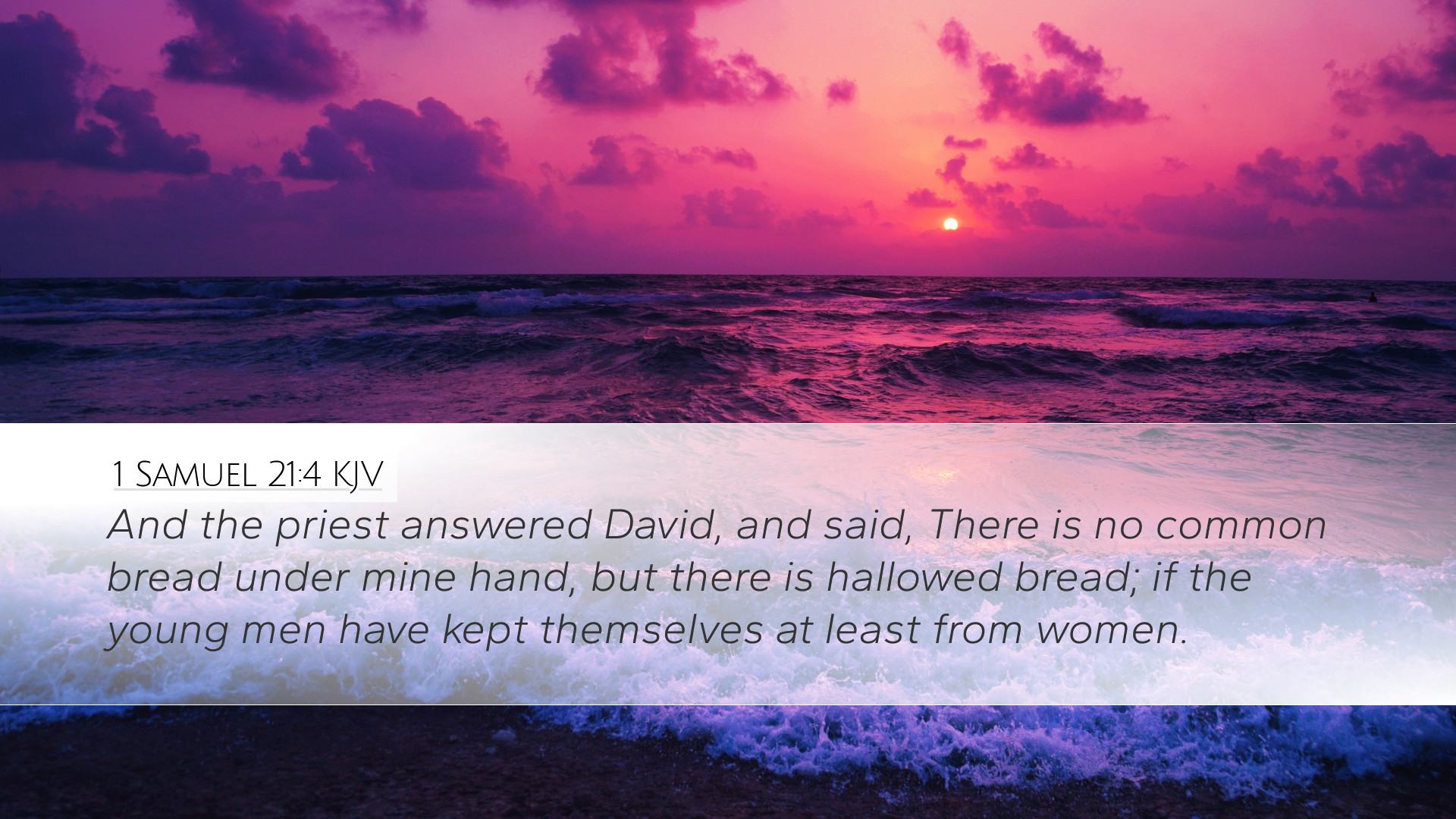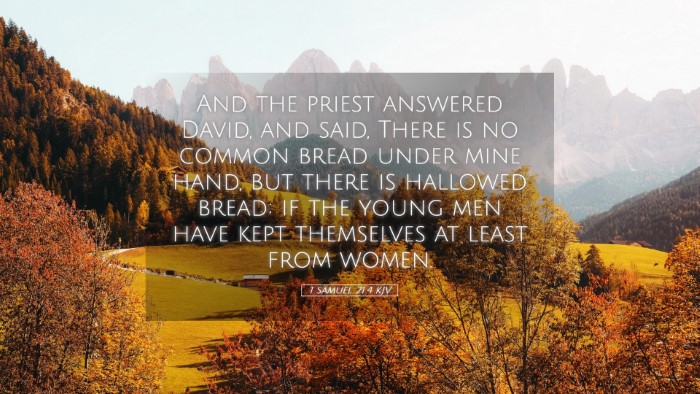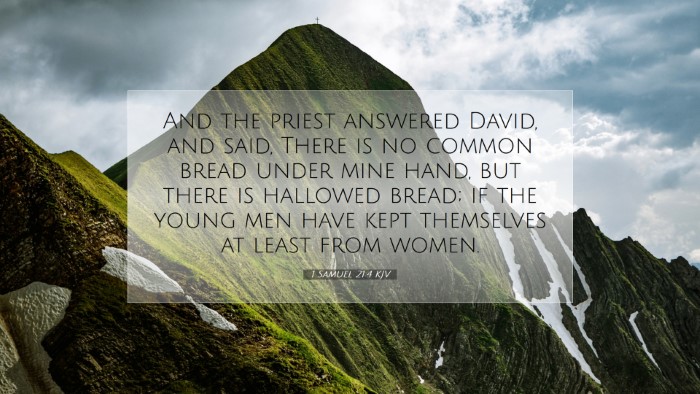Commentary on 1 Samuel 21:4
“And the priest answered David, and said, There is no common bread under mine hand, but there is hallowed bread; if the young men have kept themselves at least from women.”
Contextual Background
This verse occurs within a critical episode in the life of David, following his flight from King Saul. David approaches Ahimelech the priest at Nob, seeking sustenance and assistance. The significance of this moment lies in the intersection of urgent human need against the backdrop of divine law and priestly duty.
Literal Interpretation
Ahimelech responds to David's request by stating that there is no "common bread" available, indicating that ordinary provisions are not present. Instead, he speaks of "hallowed bread," which is the showbread set before the Lord in the Tabernacle, normally reserved for the priests. The offering of this bread carries with it deep theological and sacramental implications.
Theological Insights
-
The Nature of Holiness:
The concept of "hallowed bread" emphasizes the sacredness of God's provision. It illustrates that while the bread is meant for priests, God's mercy can extend beyond ritual boundaries. This reflects a divine economy where human need may supersede ceremonial observance, echoing Jesus' teaching on mercy being prioritized over sacrifice (Matthew 12:7).
-
Human Need vs. Ritual Compliance:
David's dire circumstances push him to seek out provisions despite the potential breach of ceremonial law. This passage prompts reflections upon the balance between adhering to religious practices and addressing the immediate needs of individuals. The need to feed the hungry, particularly when faced with life-threatening situations, calls for discernment and compassion.
-
Role of the Priest:
Ahimelech’s role is significant. He stands as a mediator between God and David. His answer reveals his understanding of what is required in this moment—hallowed bread. He implicitly acknowledges David’s anointing, recognizing the kingly authority over ritualistic regulations when exigencies arise.
Commentary from Matthew Henry
Matthew Henry draws attention to the contrast between the "common bread" and the "hallowed bread." He asserts that even in dire situations, the value of sacred things should not be diminished. Henry reflects on how David's need leads to a providential provision. The hallowed bread signifies God's sustenance, not just physically but spiritually, pointing to God's ultimate provision in Christ.
Insights from Albert Barnes
Barnes emphasizes the connection between the sacred and the everyday. He interprets this response from Ahimelech as a foreshadowing of the greater sacrificial system fulfilled in Christ. The allowance of David to partake in the hallowed bread symbolizes God's readiness to provide grace to those in need, affirming that true communion with God transcends ritualistic formalism.
Reflections from Adam Clarke
Clarke highlights the significance of David’s men maintaining purity, even as they are about to partake in what is holy. His commentary suggests that preparation and purity are essential for entering into God’s presence. This call to purity invokes broader spiritual themes regarding the approach to God's provision and holiness. Clarke also notes the practical outworking of this event—the establishment of a precedence for prioritizing mercy and human need in religious practice.
Application for Today
This verse serves as a timeless reminder for pastors, theologians, and students of the Scriptures to consider the nature of God's provision amidst the principles of His law. It invites exploration of how we respond to human need in our ministry contexts and encourages a grace-filled approach to church rules and practices. The lesson here transcends mere historical context, urging believers to embody mercy while upholding the essence of holiness.


